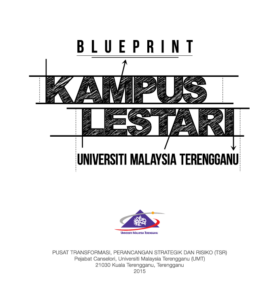Tropical Coastal Zone Development Program (TROCOZ) 2023
August 7 to August 31, 2023
The Tropical Coastal Zone Development Program (TROCOZ) for the year 2023 took place from August 7 to August 31, 2023, and it saw active participation from a group of 12 students. This program was conducted under the guidance and supervision of PM Ir. Dr. Mr. Ahmad Fitriadhy from the Faculty of Ocean Engineering Technology and Informatics (FTKKI).
The primary focus of the TROCOZ program centered on delving into various technological aspects and conceptual frameworks related to coastal sustainability, coastal management, renewable energy, and marine engineering within the region. The program also provided participants with a broader, global perspective on pressing issues such as climate change and the significance of renewable energy sources in addressing these environmental challenges.
TROCOZ International Virtual Course (IVC) program aims to broaden knowledge for students by experiencing international atmosphere with other multi-nationality students, as well as to increase International network of ITB in the future, especially for collaboration in education and research. The specific topics consist of Tropical Coastal Infrastructure, its issues and developments, utilities, energy potential, and environmental management in coastal zone. The IVC also includes the experience of real study case from the virtual tour to Pangandaran, one of the coastal areas in Indonesia. Furthermore, issues from study case will be deeply discussed in group discussion. The opportunity to share about participants’s different cultures from different region will also be accommodated during the event. This year, collaboration with Introduction to Humanitarian Engineering (HUMANE), by conducted several lectures and discussions related how humanitarian engineering implemented in engineering project and activities correlate with issues that comes up from Tropical Coastal Zone development, is ensured to enrich the knowledge of participants. The host of this programme is Faculty of Civil and Environmental Engineering, Institut Teknologi Bandung. While, Co-hosted by Faculty of Ocean Engineering Technology and Informatics Universiti Malaysia Terengganu.

UMT’S AKUATROP, A HICoE, CONTRIBUTES TOWARDS THE COUNTRY’S FOOD SECURITY AGENDA THROUGH ITS AQUACULTURE RESEARCH
Wednesday, 01/08/2023
Universiti Malaysia Terengganu (UMT)’s Institute of Tropical Aquaculture and Fisheries (AKUATROP) has been proactively conducting research in marine science and aquatic resources and also future food in an effort to help the government meet food security for the fisheries and aquaculture sector.
AKUATROP was awarded the title of Higher Institution Centre of Excellence by the Ministry of Higher Education (MOHE) in December 2020 under the niche area of Future Food: Sustainable Shellfish Aquaculture. MOHE has allocated RM6.75 million to AKUATROP for this purpose.
Aquaculture Research
AKUATROP focuses on four main research programmes, namely Resource Sustainability, Breeding Technology, Food Health and Quality Assurance, and Green Technology, that can contribute towards the country’s food security agenda.
Aquatic resource sustainability is the key to ensuring species with commercial value can be maintained for quality seed production, which in turn will enable natural food supply can be sustained.
Vice Chancellor Professor Dato’ Dr. Mazlan Abd Ghaffar said that under the Resource Sustainability research programme a release of mud crab seeds and a release of 2 million freshwater giant prawns to several main rivers in Terengganu have been carried out, intended to increase the population of the species in those areas.
“Based on the feedback from the fishermen in those areas, the quantity of prawns has increased a year after the release. A study by AKUATROP has shown that the rate of freshwater giant prawn seed release amounted to 200,000 prawns.
“The release of mud crab seeds and freshwater giant prawn seeds into the rivers will yield an economic return of RM450,000 to the fishermen. The average amount of freshwater giant prawn catch has increased from 4 kg (worth RM160) to 9 kg (worth RM360).
In addition, 300,000 crab seeds produced at AKUATROP Hatchery have been successfully released into a mangrove area at Sungai Pulai, Johor and Setiu Wetlands, Terengganu.
For the Breeding Technology research programme, AKUATROP focuses on crustacean species free from diseases and that have great potential in aquaculture in terms of farming management technology, high market demand, high market value, and most importantly are able to improve the socioeconomic status of farmers and coastal communities.
Quality seeds help increase production quantity and reduce the cost.
Establishment of Broodstock Multiplication Centre (BMC)
According to Prof. Mazlan, AKUATROP has initiated the establishment of Broodstock Multiplication Centre (BMC) in line with the country’s food security mission. Quality seeds will help increase production quantity and reduce the cost.
“The main agenda is to develop parent species that can withstand diseases for the sustainability of the aquaculture farming industry in Malaysia.”
He added that AKUATROP is rearing high quality local parent species to provide sufficient supply to seafood industry in Malaysia and the region. This effort can help stimulate the economy of coastal communities and industry players.
Green Technology Research Programme
A project under this programme is Black Soldier Fly (BSF) research. AKUATROP and its industrial partner have succeeded in creating food for aquatic animals, namely fish and prawns. The food will be mass produced and marketed to farming food manufacturing sector.
A ton of organic wastes will be processed to yield on average 200 kg of raw material daily from farmed BSF larvae. BSF are insects easily found all over the world in different species. The larvae contain high content of quality protein, chitin, and lipid for daily needs.
The use of BSF as an alternative can reduce dependence of fish-based protein food that is expensive and unsustainable.
Animals fed BSF food have been scientifically proven to grow quickly and develop a stronger immunity. This alternative can meet a wide market demand and fulfil the government’s call toward food security and future food.
Reducing Dependence of Imported Food
The National Agrofood Policy and the National Food Security Policy Action Plan aim to help the government reduce the dependence on imported food and increase food security and supply of the country.
The use of an alternative protein source from BSF will reduce the need for the country to import raw items from outside. It will also enable meeting high protein source needs for aquatic animal farming, which will help B40 farmers.
Under the Food Health and Quality Assurance programme, AKUATROP focuses on research regarding aquaculture waste for the purpose of the production of substances that can increase the life span of seafood products before being marketed. This will help reduce the financial loss experienced by seafood industry operators.
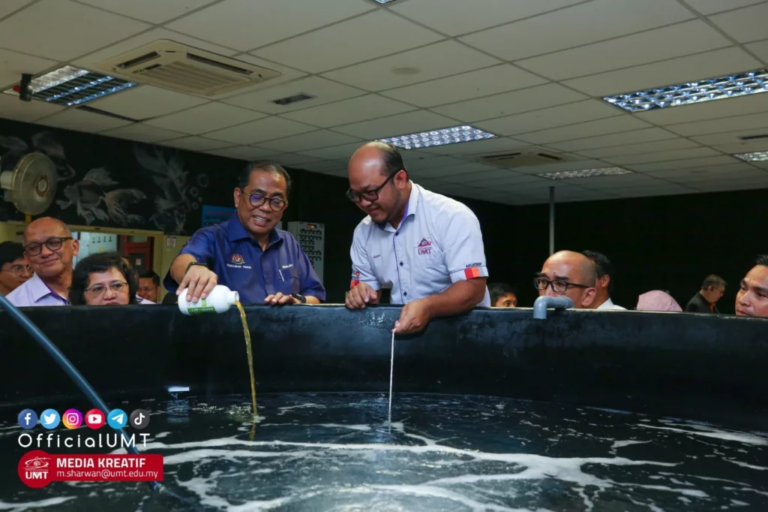
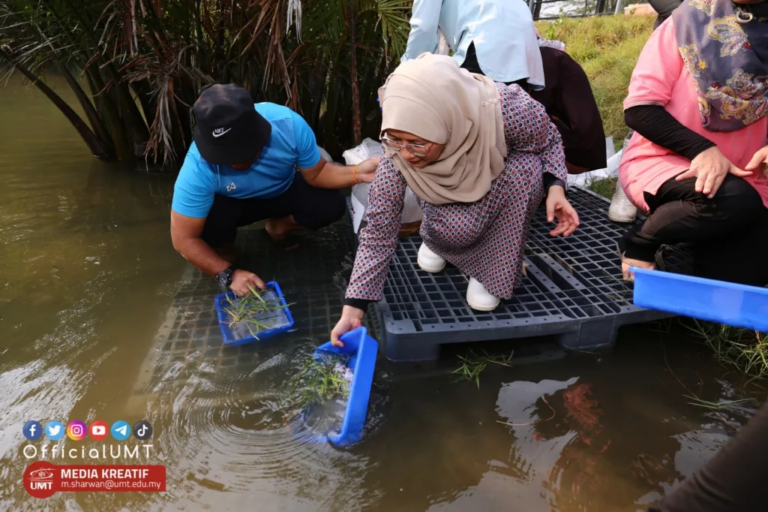
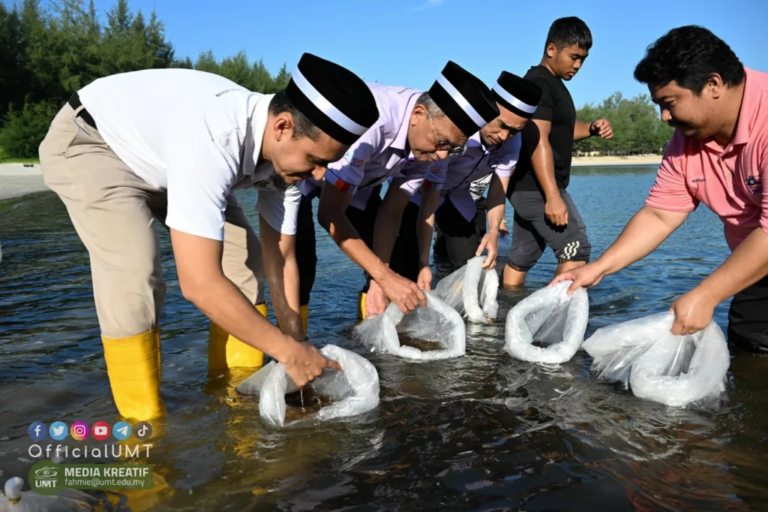
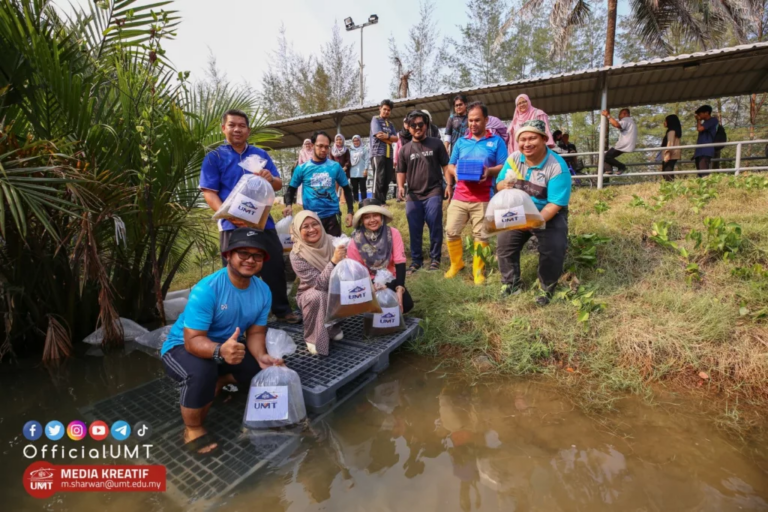
Affordable and clean energy
